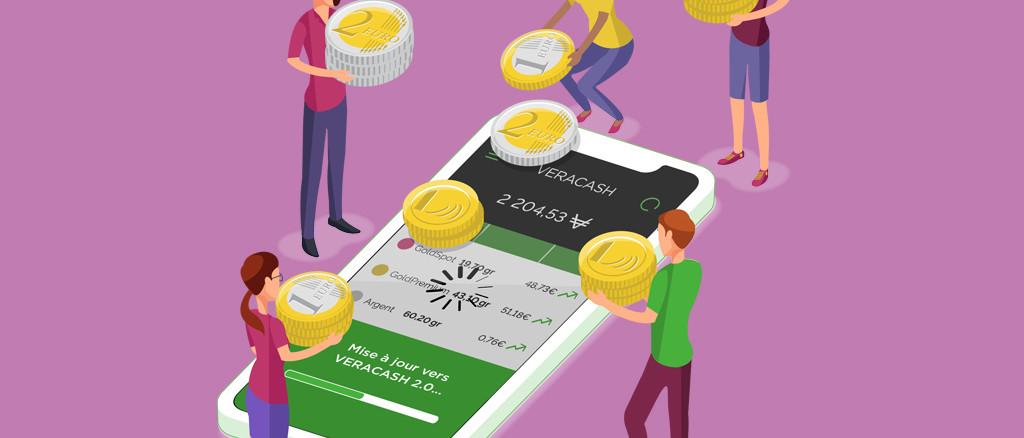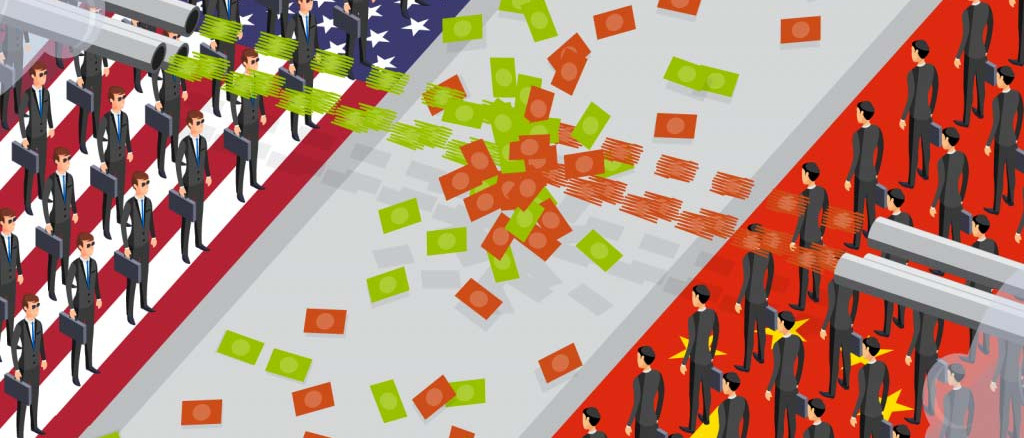On Monday, 21 September 2020, the FinCEN Files revealed $2.1 trillion dollars’ worth of suspicious transactions performed between 1999 and 2017.
FinCEN = The US Treasury’s Financial Crimes Enforcement Network.
Suspicious Activity Reports (SARs) = Reports on suspicious transactions, filed with the US Treasury by banking institutions. SARs do not constitute proof of fraud, in and of themselves, but are an indication of suspicion as to the source(s) of funds. The equivalent in France is Tracfin.
Authors’ Note: The purpose of this article is not to justify the widespread surveillance of financial transactions and of citizens, but rather to present abuses within the international banking system, in connection with money laundering and its repercussions, as well as the systematic circumvention of international regulations.
A brief overview of the FinCEN Files scandal
This new major global investigation (which echoes those of the Panama Papers and the CumEx-Files) was made possible by the Suspicious Activity Reports which are submitted by US banks when they detect questionable funds transfers. More than 2,100 confidential documents by the American media outlet, BuzzFeed News. With the help of 400 journalists working for 110 media organizations in 88 countries, ICIJ (International Consortium of Investigative Journalists) revealed how some of the biggest banks worldwide have (again) allowed criminals to move dirty money around the world.
These trillions of dollars are just a drop in an ocean of dirty money flowing through the global financial system. Still, ICIJ has created an interactive map, by country, representing a small fraction of the trillions of dollars of transactions identified in the FinCEN Files.
Five big banks in the cross hairs
In spite of their best efforts, an analysis of the FinCEN Files has put five banks, each with an international reach, in the spotlight: JPMorgan, HSBC, Standard Chartered Bank, Deutsche Bank, and Bank of New York Mellon. In particular, the investigations have revealed that:
- Bank of America, Citibank, JPMorgan Chase, American Express and others have handled millions of dollars’ worth of transactions for the family of Viktor Khrapunov, a former Soviet official wanted by Interpol.
- The British bank Standard Chartered transferred money in the name of Al Zarooni Exchange, a company based in Dubai which was later accused of laundering money for the Taliban.
- One of the closest associates of Russian President Vladimir Putin allegedly used Barclays in London to avoid sanctions preventing him from utilizing financial services in the West. Some of the money was used to buy works of art.
- JPMorgan allowed one company to transfer more than $1 billion to an account in London, without even knowing who owned it! The bank later discovered that the company undoubtedly belonged to a mafioso who appeared on the FBI’s Ten Most Wanted Fugitives list.
- Despite warnings about a local company which was helping Iran to evade sanctions, the Central Bank of the UAE took no action.
- Deutsche Bank transferred massive amounts of dirty money from “money launderers” to organized crime, terrorists and drug traffickers.
Lax banks, repeat offenders
The FinCEN Files affair is just the umpteenth scandal amongst the biggest banks in the world. Unfortunately, this is not their first offence, a depressing status quo. Do big international banks feel a sense of impunity? It seems that the colossal fines imposed since 2008 still do not act as a deterrent.
The FinCEN Files have exposed an underlying truth of our modern era: the main thoroughfares of our global economy have become networks over which dirty money transits around the globe.
“Financial institutions have abandoned their roles as front-line defenses against money laundering.” – Paul Pelletier, a former senior US Justice Department official and financial crimes prosecutor
In addition, these files have shown that banks hurry to write up SARs whenever a transaction or one of their clients is the subject of an investigation or a negative article in the press. Why is that? The banks are perfectly capable of stopping suspicious transactions, but they are not compelled to do so. However, they are required to report those questionable activities to FinCEN. With these more than questionable transactions, often in amounts of eight figures and up, the banks increase their profits by raking in fees. The latest example to date is JPMorgan’s estimated $500 million in revenue from services rendered to Bernie Madoff, the famous American fraudster.
Employees asked to hold their tongues
A lawsuit filed in federal court in New York in December 2019 claimed that employees at Standard Chartered Bank who objected to illegal transactions were “threatened, harassed and fired”. The complainants assert that they were forced out of their jobs when Standard Chartered Bank learned that they had cooperated with the FBI, which was then investigating money transfers from US-sanctioned countries that Standard Chartered had executed.
As for HSBC, a dozen former compliance officers have questioned the effectiveness of anti-money laundering programmes. They have spoken out in interviews with ICIJ and BuzzFeed News.
HSBC: Banks behaving badly
HSBC sheltered Al Qaeda financiers! According by a 2012 US Senate report, the leading European bank had long been “one of the most active global banks in Saudi Arabia”. HSBC helped a suspicious Saudi bank transfer money to the United States, a bank which was later discovered to have close ties to Al Qaeda. But HSBC’s willingness to turn a blind eye to its clients’ criminal activities extends far beyond the Middle East and Al Qaeda. Still in 2012, the leading European bank was ordered to pay a fine of $1.9 billion to the US Department of Justice in order to avoid prosecution. In fact, HSBC acknowledged having helped Mexican cartels launder money by allowing them to transfer sums totalling at least $881 million. At that time, the famous Sinaloa Cartel, set up by the less well-known name of El Chapo, dominated the global drugs market.

Prosecution would be dropped if the bank made a commitment to fighting these practices. But this does not appear to have happened, as the FinCEN Files have revealed multiple similar transactions which all took place between 2012 and 2017. Interestingly though, the US Government had allowed HSBC to make an announcement in December 2017, stating that it had met all of its commitments!
The (other) consequences of money laundering
Money laundering consists of handling assets in a way which conceals its criminal origins. The subject is so vast that it is impossible to cover all of the repercussions on individuals and economies.
According to the FATF (Financial Action Task Force), annual flows of dirty money are estimated at 2% to 5% of global GDP (somewhere between $700 billion and $1.75 trillion), and their constantly rising figures are intimately linked to the many opportunities for money laundering which are made possible by globalization.
With one crisis coming after the other, and in the midst of the coronavirus pandemic, dirty money dose not constitute an immediate threat. However, it has far-reaching repercussions, as drug traffickers, corrupt leaders and politicians, and crooks of all kinds who are capable of creating elaborate Ponzi pyramid schemes are ruining thousands of lives and entire segments of fragile economies.
To offer another example, ICIJ has determined that money laundering was partially responsible for the death of more than 31,000 Americans, in 2018 alone, associated with the import of synthetic drugs like Fentanyl. That drug was able to be imported from China thanks to complex mechanisms involving international money transfers and offshore companies.
Once it has taken root, money laundering can have serious economic, political and social consequences. This affair has revealed that, despite the initiatives taken by the great world powers, the authorities are often overwhelmed, or even lenient, in this matter.
Banks plummeting on the stock exchange
On 21 September 2020, the shock wave of this revelation caused the price of shares in the main European banks to plummet.
- In Frankfurt, Deutsche Bank fell 8.7% to €7.00.
- In London, Standard Chartered lost 5.8%, dropping to £338.60.
- In Paris, Société Générale plummeted 7.7% to €11.66.
- In Amsterdam, ING took a 9.3% nosedive down to €5.98.
- In Switzerland, UBS shares lost 6.2% of their value, falling to CHF 10.31.
- In Hong Kong, HSBC shares sank to their lowest level in 25 years, closing with a 5.33% drop to HKD 29.30.
The Chinese daily newspaper, Global Times, reported that the HSBC Group was one of the first to be included on Beijing’s “unreliable entities list”. Its placement on this kind of list could lead to sanctions ranging from fines to restrictions on business activities or on the entry of equipment and personnel in China.
A banking system which is above the law
The first lesson to be learned from this investigation is that, despite their statements of intent and the supposed mechanisms put in place, many banks continue to tolerate their clients’ questionable financial activities. In spite of the substantial fines imposed in the past and the threat of criminal prosecution, big banks continue to play a central role in the transfer of funds with ties to corruption, money laundering, organized crime and terrorism.
Léa Maillochaud
My job: I'm in charge of developing effective digital content strategy
My mission: to provide you with informative content, popularise the use of precious metals and promote VeraCash
You might be interested in
5 January 2021
VeraCash is committed to fundraising to strengthen its reputation as an atypical neobank.
Don't pull your hair out! Because we know that our clients come to us mainly from the perspective of "nonbanking", we would like to reassure you…
12 September 2019
Money Heist: A lesson on money from the Professor
What happens if the financial institution or the government should waver? The Professor is gambling on the assumption that the Bank of Spain will not…
7 August 2019
How can we prepare for the currency war?
Once you realize that the States can wage war against one another by means of liquidity injections and quantitative easing, you will find there is…


